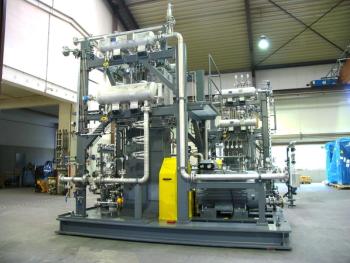
Ruling Depressurizes Gas
SCOTUS finds EPA lacks authority to restrict GHG
The Supreme Court of the United States (SCOTUS) found in early July that the Environmental Protection Agency (EPA) requires direct congressional authorization to adopt regulations on CO2 emissions, which effectively diminished the 1970 Clean Air Act. The takeaway is that fossil-fuel burning plants will be under less pressure to address greenhouse gasses (GHG).
According to a U.S. Energy Information Administration report titled “Power Plant Operations Report”, from 2005 to 2019, the amount of coal used in power generation dropped by more than 20%. Simultaneously, natural gas doubled from 19% to 38%. The SCOTUS ruling will likely not impact the current carbon-reduction trend, what will be affected is how energy is handled regionally.
Areas neglecting balance in power generation sources have issues. The North American Electric Reliability Corporation (NERC) recently published a report titled “2022 Summer Reliability Assessment”, which details anticipated outages this summer. What it shows is that a large percentage of the United States and some parts of Canada will experience power drops. Analyzing the data reveals that areas where power outages happen typically have an unbalanced energy diet.
Take for instance California. In June, lawmakers passed Assembly Bill No. 205, which drew on California’s energy problems. The state struggles to provide power, and the bill bets that relaxing regulations and investing into carbon will help subsidize times when renewables struggle to meet demand. They hope to find a solution by walking center between reducing carbon emissions and providing reliable power.
The opposite is happening in Indiana. According to the Indiana Department of Natural Resources (DNR), Indiana is one of the top coal-reliant states. Its Rust Belt position has led to overreliance, to the detriment of power generation efficiency and sustainability. They are making efforts towards decarbonization. Without EPA regulation, the transition is simplified.
The effect of the SCOTUS ruling means further localization of the energy industry. Plant operators have more leeway in using natural gas, so states have more choice over their energy mix, which may help alleviate ongoing power supply issues.
Newsletter
Power your knowledge with the latest in turbine technology, engineering advances, and energy solutions—subscribe to Turbomachinery International today.





